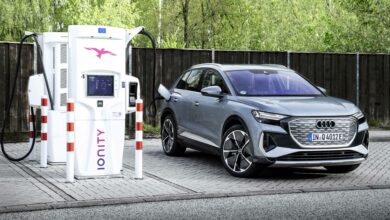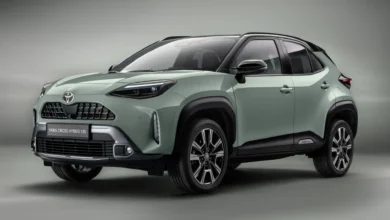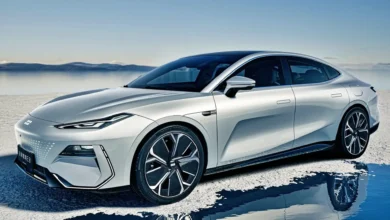
The electrification process that is taking place within traditional car manufacturers is causing changes in their business organizations. Through Automotive News, a media specialized in the automobile industry, we have been able to learn that Renault is in talks with Geely and an oil company for them to acquire an important part of the future division of the French manufacturer dedicated to the production of combustion engines. internal.
It was a few months ago that Luca de Meo, executive director of the group, acknowledged that Renault was considering separating its electric and internal combustion vehicle business branches, to obtain better financing for the first, which is growing. In the words of the Italian director himself, the electric vehicle business is on the rise, while the production of internal combustion vehicles is, today, more of a source of income with which to finance it.
It is not the only manufacturer that raises this division, which takes the example of Tesla as a reference. Ford and Mahindra also intend to carry out this separation, while Volvo and Polestar represent an example of this paradigm, precisely both under the umbrella of Geely.
The division dedicated to electric vehicles, known internally as “Ampère”, will be created this fall and will maintain its headquarters in France. It could go public as early as next year. Renault would retain its status as the majority shareholder of this division, which would bring together some ten thousand workers. It is worth mentioning that the French manufacturer has been working for some time in a productive ecosystem, located in the north of France, to support all its operations in the field of electric cars. Thus, it intends to bring together this area of the French country with its production plants for this type of vehicle, as well as for batteries, together with some of its suppliers.
As for the branch of internal combustion vehicles, its headquarters would be located outside our neighboring country, and it would concentrate the production plants for traditional propulsion and transmission systems –also hybrids–, located in Spain, Portugal, Romania, Turkey, and America. Latin.
We think there is still potential for internal combustion technology, but it is an old “game”. In this case, synergies and size matter, and if we can model these activities and work in combination with other players, we can obtain advantages in terms of costs and extend some profit margins so that we can reinvest that money in new technologies ”, Luca de Meo, CEO of the Renault group
Two partners of great caliber
Thus, according to sources close to the French manufacturer and collected by Automotive News Europe, Geely would acquire 40% of the French manufacturer’s future combustion vehicle division, which would retain an equal stake in the future company. Nissan would remain on the sidelines of this movement, which once again highlights the difficult relations between the two companies since the eventful departure of Carlos Ghosn in 2018.

It would be a new incursion of the Chinese giant Geely into the European automotive industry since it already owns Volvo and Polestar. In turn, it owns a ten percent stake in Mercedes-Benz, with whom it collaborates in a 50/50 joint venture to manufacture the new Smart. In addition, it also owns Lotus, a traditional manufacturer of sports cars in the United Kingdom, and which is precisely currently collaborating with another division of Renault, Alpine, in the development of electric sports cars.
It would not be the beginning, therefore, of relations between the two companies. Earlier this year, Geely acquired 34% of Renault’s subsidiary in South Korea. Currently, they produce hybrid vehicles at their Busan plant.
Some sources also affirm that the oil company with whom Renault is negotiating to be part of this division of combustion vehicles is Aramco, dependent on the Saudi government. This would acquire the remaining 20%, and its participation would be understood in the context of the development of synthetic fuels for the French manufacturer, in addition to green hydrogen -obtained thanks to renewable energy sources-, to explore the future of vehicles with fuel cells. Not in vain, Aramco has a research center on the outskirts of Paris, where it concentrates its studies on transport, energy, and the environment.





